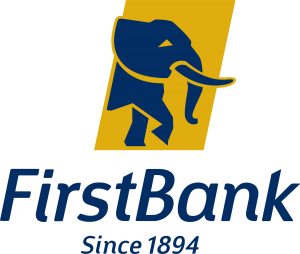Bank
Leadway Assurance, Nestle Nigeria Plc, Microsoft, Thrive Agric, Stears Join Sterling to Unlock $ 1 Trillion at ASA 2022

Leadway Assurance, Nestle Nigeria Plc, Microsoft, Thrive Agric, Stears Join Sterling to Unlock $ 1 Trillion at ASA 2022
Sterling Bank Plc has announced plans with her partners Leadway Assurance, Nestle Nigeria Plc, Microsoft Nigeria, Thrive Agric, GIZ, Stears Data and others for this year’s Agricultural Summit Africa (ASA); the largest private sector-led conference on the agriculture sector in sub-Saharan Africa.
Taking place on the 26th and 27th of October 2022, with registration ongoing at www.agricsummit.org, this edition of the ASA will focus on how the agribusiness sector can further unlock value and accelerate growth and transform Nigeria into a trillion-dollar economy.
Dr. Olushola Obikanye, Group Head of Agric and Solid Minerals Finance at Sterling, made this announcement in a statement released by the bank yesterday.
He said ASA 2022, with the theme “Engineering a Trillion Dollar Agricultural Economy,” will amongst other objectives, highlight recent successes of Nigeria’s agricultural diversification efforts by showcasing actual accomplishments and innovations while driving discourse to achieve actionable steps that will clear a path to achieve the true potential of the agribusiness sector of the economy.
In the statement, the Group Head said “With our roster of esteemed partners, the value of a gathering like the ASA to the Nigerian agribusiness sector and the economy becomes evident as the focus becomes stronger to make the most of the comparative advantages Nigeria has to help the country reach its potential”.
Dr Obikanye said the summit, will among other focus areas; deepen the conversation on Africa’s small-scale primary producers who make up more than 60% of Africa’s farming population and produces over 90% of our domestic output.
He reiterated the fact that Nigeria and Africa at large need to step up their import substitution drives by producing and sourcing locally at least 70 – 80% of the raw materials to revive our industries and create jobs for our teeming populations.
According to him, this would boost mechanization, the acquisition of inputs, and operator expansion among those involved in the value chain and result in higher output.
The Group Head explained that the summit will seek to explore the practicability of sustainable storage and power solutions at scale to drive aggregation and processing for value multiplication as the bedrock for services built around the sector’s output.
According to him, it is more important than ever to capitalize on the opportunities built into the African Continental Free Trade Area (AfCFTA) to create a regional market for Nigerian goods.
He added that the summit will also present innovation across pillars of technology and production techniques to spark interest and subsequently drive investments in sectors with the potential to accelerate the sector’s growth.
Besides this, the summit will also drive the use of the Pan-African Payment and Settlement System (PAPSS), which is the key value-delivery mechanism of trade within the region.
He remarked that the Nigerian economy has immense and unrealized potential in her primary production sectors to attain a Gross Domestic Product (GDP) estimated to be in the region of $440 billion, noting that recent global events have drawn attention to the volatility of the primary source of foreign exchange for the Nigerian state, along with the country’s ability to retain the value of her currency, maintain stability and a year-round supply of commodities, provide employment to afford goods and services, and create value to drive economic growth.
Dr Obikanye pointed out that the economies of some of the most developed countries in the world shared many similarities in their path to prosperity.
He continued by saying that regardless of whether an economy is based on extraction, processing, trade, services, tourism, or technology, each one typically takes advantage of its distinct gifts in some combination of the following factors that spur economic growth: land, labour, capital, and entrepreneurship.
The Group Head remarked that beyond these factors, is a pivotal element of deliberateness, where the emphasis is on implementing a turnaround with the existing assets.
He noted that the more established economies of the world will always be a reference point for other nations due to the robustness of their primary, secondary and tertiary sectors and their eventual diversification into knowledge-driven economies.
He noted that these super-economies have an underlying foundation that is typically a robust extractive and production sector that serves as the cornerstone for almost all other layers of value creation in such markets.
Bank
Alpha Morgan to Host 19th Economic Review Webinar

Alpha Morgan to Host 19th Economic Review Webinar
In an economy shaped by constant shifts, the edge often belongs to those with the right information.
On Wednesday, February 25, 2026, Alpha Morgan Bank will host the 19th edition of its Economic Review Webinar, a high-level thought leadership session designed to equip businesses, investors, and individuals with timely financial and economic insight.
The session, which will hold live on Zoom at 10:00am WAT and will feature economist Bismarck Rewane, who will examine the key signals influencing Nigeria’s economic direction in 2026, including policy trends, market movements, and global developments shaping the local landscape.
With a consistent track record of delivering clarity in uncertain times, the Alpha Morgan Economic Review continues to provide practical context for decision-making in a dynamic environment.
Registration for the 19th Alpha Morgan Economic Review is free and can be completed via https://bit.ly/registeramerseries19
It is a bi-monthly platform that is open to the public and is held virtually.
Visit www.alphamorganbank to know more.
Bank
Separating Fact from Confusion: What Nigerians Need to Know About the 7.5% VAT on Banking Service Fees

In recent weeks, digital-banking customers and social media, especially on Twitter have raised concerns about deductions labelled as “VAT” on transfers and other charges.
Some dangerously false narratives, which when you take a critical look, you’ll clearly see that they have been orchestrated and sponsored by malicious elements, have given the impression that the 7.5% Value Added Tax (VAT) is a new or arbitrary charge introduced by fintechs, or that it applies to the amounts customers send. These claims are misleading and deserve careful clarification which is the purpose of this piece.
First, it’s important to understand how VAT works in Nigeria’s financial sector today. VAT on fees and charges for financial services has long been part of Nigeria’s tax system. The then Federal Inland Revenue Service (FIRS) had issued information circulars on March 31, 2021 where it stated that VAT on Financial Services (Circular No. 2021/04) that most fees, commissions, and charges by financial institutions (banks, insurance companies, brokers) are subject to 7.5% VAT.
This justifies a recent advertorial the Nigeria Revenue Service (NRS) which stated unequivocally that VAT was not newly introduced on banking service charges by recent tax reforms, and that it did not impose a new tax obligation on customers in that regard.
However what was left unsaid in that publication was that on the 12th of December, the tax agency had written to all financial institutions and payment gateways based on past meetings with operators that following from the new Tax Act, they were reminded of their mandatory obligations to collect, deduct and remit VAT at the prescribed rate.
The Agency then gave an 18- day grace period to all players to configure and align their systems while directing full compliance with the directive with effect from January 19, 2026. And so, some fintechs sent messages to their customers in the spirit of clarity and transparency.
It must be said that what has changed is that in a bid to widen the tax net, microfinance banks and fintechs who were not obligated to deduct and remit said VAT before now, have now become compelled to do so. The enforcement and standardised collection of VAT across banks and fintech platforms including mobile transfers, USSD transaction fees, and card issuance fees with compliance deadlines issued by tax authorities. So why anyone would vilify any financial institution obeying the laws of the land beats my imagination.
For those who have raised questions around transparency and wrongly suggesting that fintechs are suddenly imposing new, unexplained costs on users – as it has been explained above, this is a matter of regulatory compliance, not a lack of transparency or customer exploitation. These VAT deductions are not new fees created by the companies themselves, and providers are not arbitrarily raising their prices.
In closing, two things that everyone must bear in mind as we move forward in this new tax climate – all stakeholders including fintech platforms and regulators must communicate better and clearly. Nigerians must refrain from peddling unsubstantiated claims and malicious narratives, it has no benefits for anyone and erodes trust in systems.
Bank
FirstBank Introduces Exclusive 500-Seater Bleacher at Carnival Calabar & Festival 2025

FirstBank Introduces Exclusive 500-Seater Bleacher at Carnival Calabar & Festival 2025
Lagos, 26 December 2025 – FirstBank, West Africa’s premier financial institution and financial inclusion services provider, has officially announced its sponsorship of the Carnival Calabar & Festival 2025, unveiling a landmark addition set to redefine the carnival experience — the first-ever private premium seating area at the event.
The highlight of FirstBank’s participation is the construction of a 500-seater premium bleacher, designed to provide comfort, safety, and an elevated viewing experience for carnival enthusiasts.
Speaking on the sponsorship, the Acting Group Head Marketing and Corporate Communications, FirstBank, Olayinka Ijabiyi, noted that the carnival aligns with the Bank’s First@Arts initiative, a platform dedicated to supporting the creative arts value chain across Nigeria. He said, “We recognise the transformative power of the arts, including carnivals, in inspiring people and strengthening national unity. For more than 131 years, we have supported platforms that promote self-expression, social reflection and cultural exchange. Our investment in the Carnival Calabar & Festival demonstrates our commitment to preserving the nation’s rich cultural heritage through First@Arts.”
“As part of our sponsorship this year, we are introducing the first-ever private 500-seater premium bleacher to further elevate the carnival experience. This exclusive seating is designed to provide exceptional comfort and an unforgettable viewing experience for attendees,” Ijabiyi added.
The Chairman of the Cross River State Carnival Calabar Commission, Gabe Onah, also commented on FirstBank’s sponsorship. “FirstBank’s involvement is a strong demonstration of private-sector support for culture and tourism. This partnership not only enhances the overall quality of the carnival but also strengthens its global appeal,” he said.
The Carnival Calabar & Festival 2025 is officially marketed by Okhma Global Limited, the appointed Official Marketer responsible for brand partnerships, promotional engagements, and ticket sales. Okhma Global Limited has partnered with the Cross River State government in delivering Carnival Calabar & Festival for over ten years, playing a key role in strengthening the carnival’s commercial growth and global visibility.
-

 celebrity radar - gossips6 months ago
celebrity radar - gossips6 months agoWhy Babangida’s Hilltop Home Became Nigeria’s Political “Mecca”
-

 society6 months ago
society6 months agoPower is a Loan, Not a Possession: The Sacred Duty of Planting People
-

 society5 months ago
society5 months agoReligion: Africa’s Oldest Weapon of Enslavement and the Forgotten Truth
-

 news6 months ago
news6 months agoTHE APPOINTMENT OF WASIU AYINDE BY THE FEDERAL GOVERNMENT AS AN AMBASSADOR SOUNDS EMBARRASSING






